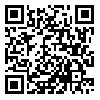Volume 28 - Supplementary
IBJ 2024, 28 - Supplementary: 171-171 |
Back to browse issues page
Download citation:
BibTeX | RIS | EndNote | Medlars | ProCite | Reference Manager | RefWorks
Send citation to:



BibTeX | RIS | EndNote | Medlars | ProCite | Reference Manager | RefWorks
Send citation to:
Fathifar Z, Kimiaei M, Mansouri Z, Rasti Z, Ferdousi R. Free Fitness Mobile Applications: A Review and Quality Assessment Using the Mobile Application Rating Scale (MARS). IBJ 2024; 28 :171-171
URL: http://ibj.pasteur.ac.ir/article-1-4594-en.html
URL: http://ibj.pasteur.ac.ir/article-1-4594-en.html
Abstract:
Introduction: To promote a healthy life, the support of digital mobile health tools such as mobile applications (apps) addressing a healthy diet or physical activity appears promising. Many mobile apps have been developed to help users improve their fitness and weight management behaviors. However, the speed at which apps are created and updated means that it is essential to assess their quality periodically. This study aimed to identify and evaluate the quality of fitness apps using the Mobile Application Rating Scale (MARS) for smartphones to increase physical activity and improve the health of healthy adults.
Search Strategy: Searches were conducted in the Android Google Play Store and Bazar (The Persian version of Google Play) in Mars 2023 to find suitable apps using relevant search terms. Two reviewers searched for eligible apps, evaluated their quality using the MARS objective and subjective quality subscales, and identified Persian or English language fitness apps that had a rating of four stars or higher and were compatible with Android. Apps were included if they provided comprehensive information on both diet and physical activity. The exclusion criteria encompassed any app that had been downloaded fewer than 20,000 times for Persian language apps and less than 1 million times for English language apps, as well as those that experienced access or technical issues. The quality of the apps was measured using the MARS. The scores for each section and the final score for the applications were retrieved.
Results: A total of 357 apps were identified as eligible, of which 38 fully met the inclusion criteria and were included for quality assessment. The researcher's evaluation yielded an average MARS score of 3.64 out of 5 for apps, with subscale scores of functionalities (4.27), aesthetics (3.69), engagement (3.26), and information (3.56). The average app quality was found to be acceptable (mean = 3.69). Only one mobile app was evidence-based. The limitations were unreliable and missing information sources, absence of evidence-based information, high level of readability, lack of visual information, customization based on users' goals, providing frequent feedback, and a text search field.
Conclusion and Discussion: There is significant heterogeneity in the quality of free fitness apps available to users. Many of these apps fail to meet acceptable standards for quality and content. App developers and technology professionals should collaborate with academics, information communication specialists, clinicians, and end users in a co-design process to create innovative, compliant, and evidence-based apps. E-health collaborations are essential for developing guidelines and recommendations that can help avoid redundant efforts and save time.

Search Strategy: Searches were conducted in the Android Google Play Store and Bazar (The Persian version of Google Play) in Mars 2023 to find suitable apps using relevant search terms. Two reviewers searched for eligible apps, evaluated their quality using the MARS objective and subjective quality subscales, and identified Persian or English language fitness apps that had a rating of four stars or higher and were compatible with Android. Apps were included if they provided comprehensive information on both diet and physical activity. The exclusion criteria encompassed any app that had been downloaded fewer than 20,000 times for Persian language apps and less than 1 million times for English language apps, as well as those that experienced access or technical issues. The quality of the apps was measured using the MARS. The scores for each section and the final score for the applications were retrieved.
Results: A total of 357 apps were identified as eligible, of which 38 fully met the inclusion criteria and were included for quality assessment. The researcher's evaluation yielded an average MARS score of 3.64 out of 5 for apps, with subscale scores of functionalities (4.27), aesthetics (3.69), engagement (3.26), and information (3.56). The average app quality was found to be acceptable (mean = 3.69). Only one mobile app was evidence-based. The limitations were unreliable and missing information sources, absence of evidence-based information, high level of readability, lack of visual information, customization based on users' goals, providing frequent feedback, and a text search field.
Conclusion and Discussion: There is significant heterogeneity in the quality of free fitness apps available to users. Many of these apps fail to meet acceptable standards for quality and content. App developers and technology professionals should collaborate with academics, information communication specialists, clinicians, and end users in a co-design process to create innovative, compliant, and evidence-based apps. E-health collaborations are essential for developing guidelines and recommendations that can help avoid redundant efforts and save time.

| Rights and permissions | |
 |
This work is licensed under a Creative Commons Attribution-NonCommercial 4.0 International License. |







.png)
